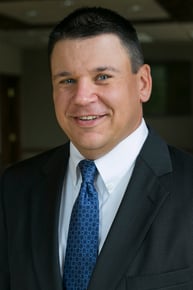Despite the sense of urgency to help when disaster strikes, it is important to do some research before donating money. Don’t let dishonest people take advantage of your good intentions. Download the handout below to share with employees. It discusses how to avoid scams, how to choose a charity, and highlights some nationally recognized organizations.
Hurricane Harvey is the strongest storm to make landfall in the United States since Hurricane Charley in 2004. News of the damage it has caused to southeastern Texas is prompting people to help in whatever ways they can. Unfortunately, there are dishonest people who prey upon people’s good intentions, creating fake charity campaigns to exploit victims and take advantage of those who want to help.
How to Avoid Scams
Despite the sense of urgency to help when disaster strikes, it is important to do some research before donating. Consider the following best practices to ensure that your resources go to a legitimate charity with experience in disaster relief:
- Never wire money to someone who claims to be a charity. Legitimate charities do not ask for wire transfers. Once you wire the money, you’ll probably never get it back.
- Be cautious about bloggers and social media posts that provide charity suggestions. Don’t assume that the person recommending the charity has fully researched the organization’s credibility.
- Only donate through a charity’s official website, never through emails. Scammers have a knack for creating fake email accounts that seem legitimate.
- Ensure that the charity explains on its website how your money will be used.
- Be wary of charities that claim to give 100 percent of donations to victims. That is often a false claim, as well-structured organizations need to use some of their donations to cover administrative costs.
- Never offer unnecessary personal information, such as your Social Security number or a copy of your driver’s license. However, it is common for legitimate charities to ask for your mailing address, and it is safe for you to provide it.
How to Choose a Charity
Even legitimate charities need to be considered with care. The Federal Trade Commission suggests avoiding new charities because, despite their legitimacy, they may not have the resources needed to get your money to its intended recipients.
Donors looking for a worthy charity can access an unbiased, objective list on a website called Charity Navigator. The site receives a Form 990 for all of its charities directly from the IRS, so it knows exactly how the charities spend their money and use their donations. It also rates charities based on their location, tax status, length of operation, accountability, transparency and public support.
Gaining popularity for charitable donations is a crowdfunding website called GoFundMe, which allows people to raise money for a wide variety of circumstances. Despite its popularity, visitors to the site should be cautious about the campaigns to which they donate. Visitors can report suspicious campaigns directly to GoFundMe via its official website or to their state’s consumer protection hotline.


COMMENTS